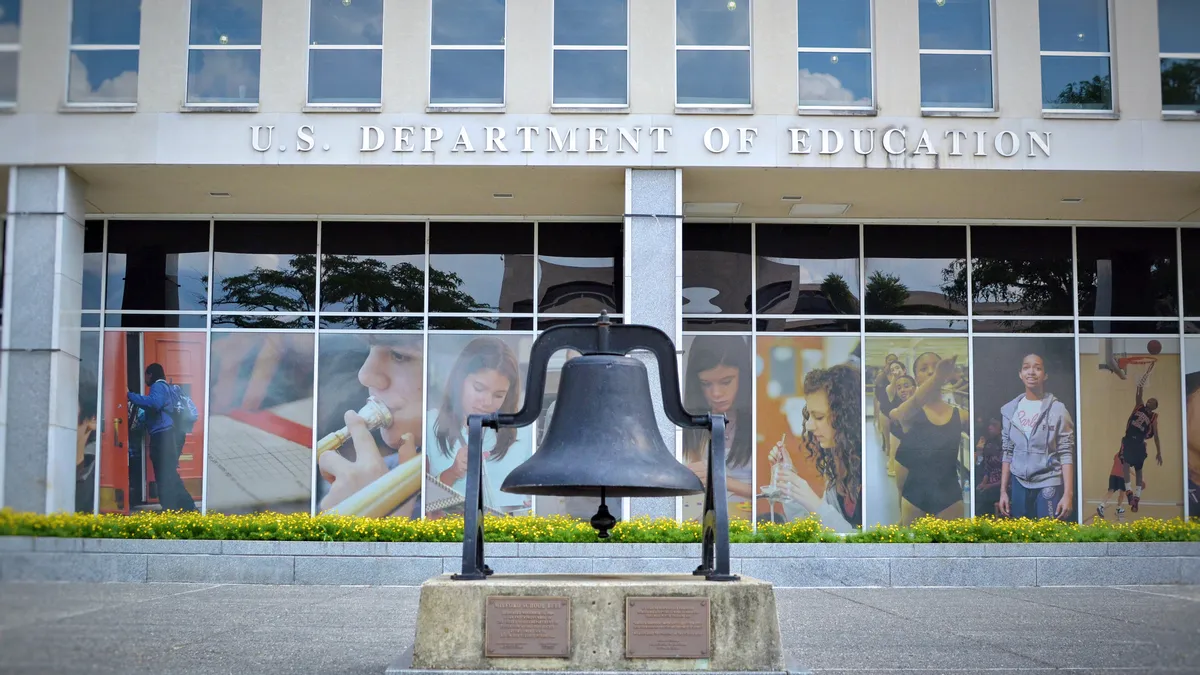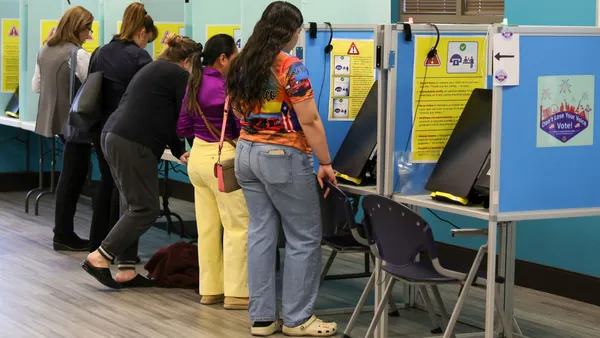Dive Brief:
- The U.S. Department of Education confirmed Wednesday that it plans to adjust key metrics for determining how much aid students qualify for when they fill out the new Free Application for Federal Student Aid.
- The agency plans to adjust income tables for inflation that it uses to calculate student aid eligibility, a move that will give students an additional $1.8 billion in federal student aid, according to a department spokesperson. NPR first reported the news.
- The Education Department initially told The Washington Post that it wouldn’t have time to update the income tables before it rolled out the new FAFSA on Dec. 30. The agency said it plans to share more details on the timeline soon.
Dive Insight:
In late December, the Education Department released a new streamlined FAFSA, which reduced the number of questions students or families must answer from over a hundred to just a few dozen.
The new form also uses a more generous formula that shields more of a family’s income when determining their aid eligibility. But the Education Department initially used outdated income tables that failed to account for inflation.
Late last year, the agency said it would make the adjustments for the next FAFSA cycle, The Washington Post reported.
Adjusting the tables is the “right thing to do,” Justin Draeger, the president of the National Association of Student Financial Aid Administrators said in a statement Tuesday. But it should have been done from the beginning, he said.
“Unfortunately, because the Department is making these updates so late in the financial aid processing cycle, students will now pay the price in the form of additional delays in financial aid offers and compressed decision-making timelines,” Draeger said.
This year’s FAFSA release came nearly three months later than usual, giving colleges much less time to calculate their financial aid offers to students. Moreover, the Education Department has said that it wouldn’t transmit FAFSA data to colleges until late January.
An Education Department spokesperson did not answer whether that timeline will change.
“Schools were promised FAFSA applicant data by the end of January,” Draeger said. “With less than a week to go, the Department has announced a significant operational change that clearly throws that date into question.”
Draeger urged the Education Department to provide colleges with guidance on when the adjustments will be made, when it will transmit FAFSA data to institutions and whether applications will need to be reprocessed due to the changes.













